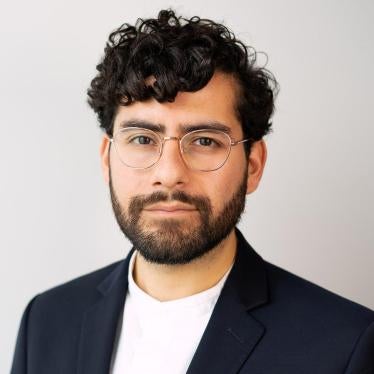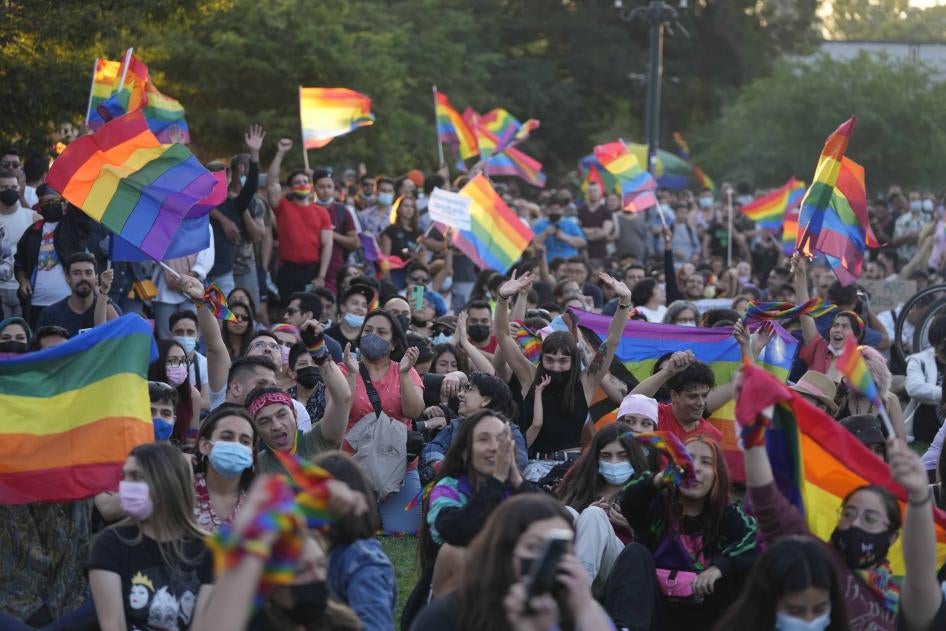From the North American tundra to the South American Patagonia, an estimated 852 million people live in countries with marriage equality. Despite these high numbers, the Americas have a way to go before becoming a true beacon for same-sex couples. Countries with marriage equality should harness their remarkable advances thus far and urge the rest of the region to join the America’s growing marriage equality bloc.
Canada became the first country in the Western Hemisphere to enact legislation recognizing same-sex marriages nationwide in 2005, after the Netherlands, which was the first to do so in the world in 2001. South American countries followed suit, with Argentina in 2010 and Uruguay in 2013. Thanks to a series of important judicial decisions in the region soon after, four more—Brazil in 2013, Mexico and the United States in 2015, and Colombia in 2016—affirmed marriage equality.
Then, in 2017, a landmark opinion by the Inter-American Court of Human Rights confirmed that all rights applicable to the “family relationships” of heterosexual couples extend to same-sex couples. This opinion provides an authoritative interpretation of the American Convention on Human Rights for the 23 countries in the Americas that have ratified the treaty.
Judicial rulings in favor of marriage equality in Ecuador in 2019 and Costa Rica in 2020 explicitly cited the Inter-American opinion. Earlier this year, Chile became the latest country in the region to recognize the equal rights of same-sex couples.
All these countries have acknowledged that in such a diverse region, the rights to privacy, equality, and non-discrimination are critical to fostering societal harmony. These universal values are reflected in the Inter-American Court’s rich jurisprudence on privacy and diversity, including in 2017. These societal and legal norms are why the Americas have arguably the most advanced family diversity standards in the world.
But not all is well in the region, including in countries with marriage equality. Some conservative and religious actors, including in the United States and Costa Rica, continue to undermine the legitimacy of marriage equality. Ecuador bars same-sex couples from adopting children. And LGBT people in, for example, Brazil, Colombia, and Mexico continue to suffer high levels of violence and discrimination that marriage equality has not helped to deter.
Against this backdrop, countries with marriage equality cannot rest on their laurels; instead, their governments and officials should continue to promote the principles of equality and non-discrimination for LGBT people through public statements and education campaigns.
And then there are the 25 countries in the region that do not have marriage equality. Some, like Honduras and Paraguay, have laws that explicitly ban same-sex marriage. In nine countries, all in the Anglophone Caribbean, consensual same-sex conduct remains criminalized – a relic of British colonialism – making the immediate prospect of marriage equality more challenging.
But activists haven’t stopped fighting for the equal rights of same-sex couples. Human rights lawyers have presented test cases before the courts in Panama, as well as before the politicized courts in Bolivia and Venezuela, aiming to set precedents in their countries. Despite setbacks, as in Peru, whose constitutional court recently issued two misguided rulings against same-sex couples, activists have rightly targeted national courts when their legislatures have left much to be desired.
Their efforts may be bolstered by potential positive changes coming to certain countries without marriage equality. The new Honduran President, Xiomara Castro, has signaled support for LGBT rights, including marriage equality. And while human rights should not be put to a popular vote, Barbados (an Anglophone Caribbean country where consensual same-sex conduct is criminalized) and Cuba have announced referendums on same-sex marriage.
This current lack of uniformity on the principles of privacy, equality, and non-discrimination in the region creates a dichotomy of pro- and anti-LGBT countries impacting same-sex couples. Some may be able to marry in their home country but not have their marriage recognized when they travel abroad. Others may not be able to marry at home and may only be able to do so if they choose to emigrate. For a more harmonized Americas, governments should rally around their regional achievements that expand human rights and the potential to set the bar for marriage equality in the world.
Countries with marriage equality can play an important role as champions of the issue, and some have already risen to the challenge. Argentina currently co-chairs the United Nations LGBTI Core Group and the Equal Rights Coalition. Both groups aim to expand the rights of sexual and gender minorities around the world. Latin American countries have also played a significant role in championing various United Nations LGBT resolutions, including leading calls for the creation of an Independent Expert on protection against violence and discrimination based on sexual orientation and gender identity. The United States and Canada have taken steps to advance LGBT rights through their foreign policy.
Whatever the initiative, governments should center marriage equality as a key element of non-discrimination; they should share information and good practices on political and legal strategies with their counterparts striving for marriage equality in their countries.
Five times as many people in the Americas enjoy marriage equality as those who lack this essential protection. But for 165 million in countries where discrimination and disparate treatment is written into law or imposed as a matter of policy, the burgeoning bloc supporting equal treatment under the law serves as a model for the rest of the region, and for the world.









